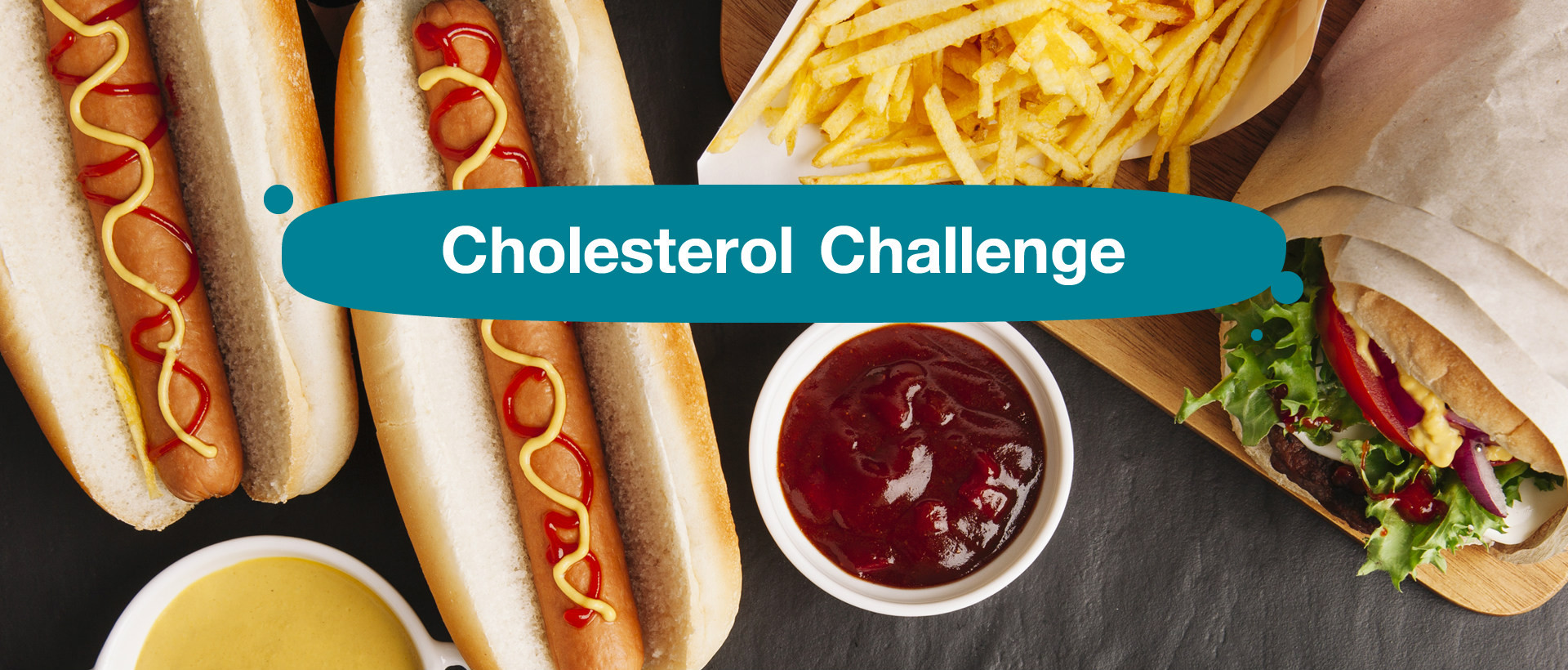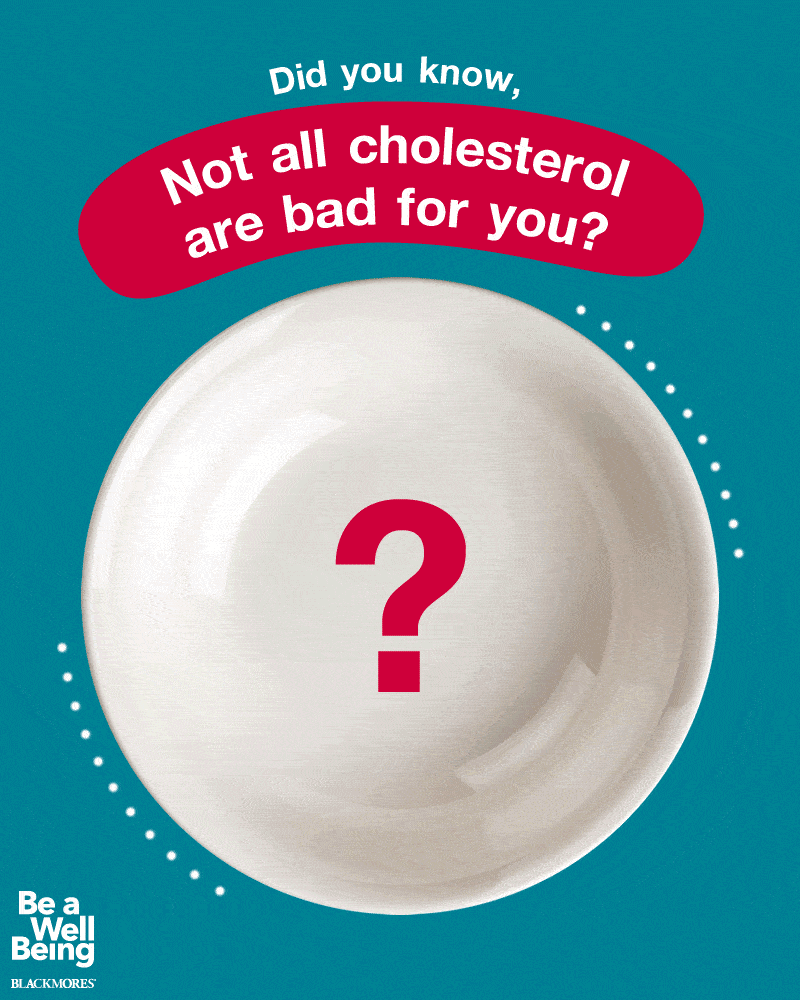Smart Heart ™ Cholesterol Challenge

Smart Heart ™ Cholesterol Challenge
Take our 8-week challenge designed to help you lower your cholesterol.Cholesterol is a type of lipid or fat that is found in the foods we eat, and is also produced in the body by the liver.
High-Density Lipoproteins (HDL), or ‘good’ cholesterol, pick up excess cholesterol in the body and transport it to the liver where it is readied for excretion, or to other areas of the body that are in need of cholesterol.
Low-Density Lipoproteins (LDL), or ‘bad’ cholesterol, are the main transporters of cholesterol in the body, taking cholesterol from one part of the body to another. Too high a level of circulating LDL in the blood can lead to deposits of cholesterol in the arteries which may affect the health of your arteries.
Managing healthy cholesterol levels is about eating the right kinds of fats, and taking care of other lifestyle factors including getting regular exercise and leading an active lifestyle.

1. Know your cholesterol
Cholesterol is measured by a blood test. A lipid profile test is usually taken, which looks at not only your total cholesterol, but also your LDL, HDL and triglycerides.
High cholesterol levels usually don't cause any signs or symptoms. A cholesterol test allows your health care provider to determine your risk of heart disease, and provide personalised health advice to help lower your risk.
2. Eat heart-healthy food
Managing healthy cholesterol levels is not just a matter of taking fat out of the diet – it’s also about eating the right kinds of fats. The good contain monounsaturated and polyunsaturated fatty acids. Polyunsaturated fatty acids include omega-3 and omega-6 essential fatty acids.
When trying to manage your cholesterol, it’s also important to make sure that you are eating adequate levels of fibre. Fibre-containing foods include whole grains, fruits and vegetables. Fibre may help to decrease the absorption of cholesterol.
3. Exercise 30 minutes per day
Moderate physical activity can help raise high-density lipoprotein (HDL) cholesterol, the ‘good’ cholesterol. At least 30 minutes of moderate exercise per day is ideal - this doesn’t need to be completed in one session.
Another way exercise can help lower cholesterol is by helping you lose - or maintain - weight. Being overweight tends to increase the amount of low-density lipoprotein (LDL) in your blood, the kind of lipoprotein that's been linked to heart disease.
4. Walk instead of sit
Active living contributes to healthy cholesterol levels (and with your improving energy levels, you’ll find it easier to motivate yourself to embrace living more actively.) It basically means finding more ways to incorporate movement into your day – while technological advances have certainly streamlined our lives, but they’ve also contributed to a more sedentary lifestyle.
You can easily find ways to live more actively each day. Instead of sending an inter-office email or calling a colleague, get up and visit them in person. Instead of eating lunch at your desk, go for a walk at lunch time. Take the stairs instead of an elevator. Consider riding or walking to work, or if that is not possible, park your car or get off the bus a few stops early.
5. Blackmores Smart Heart™
Blackmores Smart Heart™ can be used as part of the program, to help reduce blood cholesterol, naturally.
Smart Heart™ is a natural oat bran powder, rich in betaglucan. A daily serve (14 g) delivers 3 g betaglucan which, when consumed as part of a healthy diet that is low in saturated facts, helps to reduce blood cholesterol.


Share